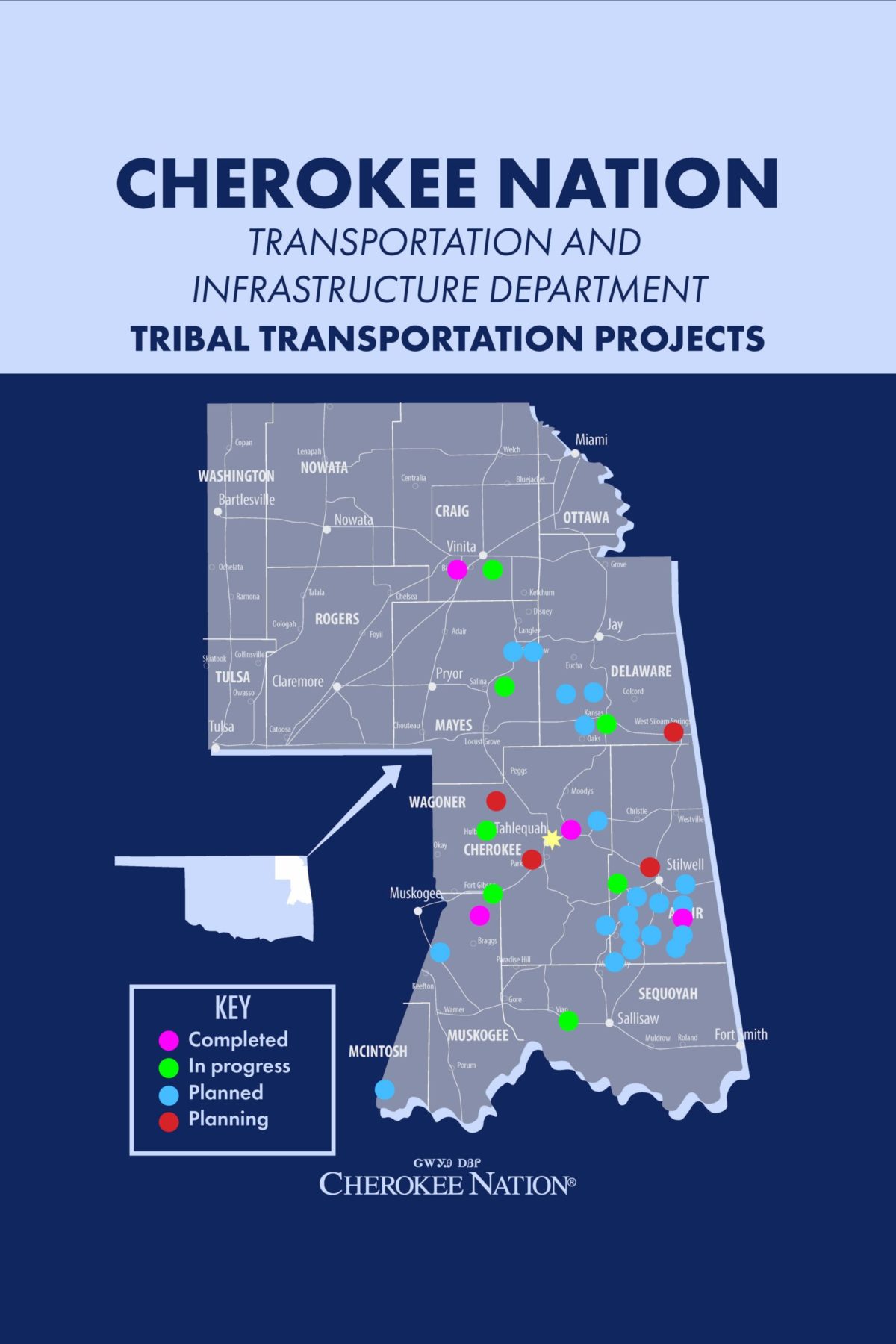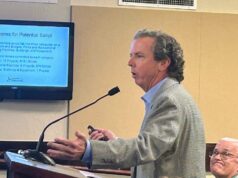President Joe Biden’s administration has taken another step to improve relations between the United States and tribal nations by signing an agreement giving the Cherokee Nation greater control over road improvements within its reservation.
The Tribal Transportation Self-Governance compact allows the tribe to plan and oversee its own transportation projects without seeking federal authorization.
This story was reported by Gaylord News, a Washington reporting project of the Gaylord College of Journalism and Mass Communication at the University of Oklahoma.
“Having oversight for the first time to plan, lead and oversee the finance of our own road projects will only mean more and better investments in terms of travel and infrastructure in the Cherokee Nation to the benefit of thousands of citizens,” said Cherokee Nation Principal Chief Chuck Hoskin Jr.
U.S. Deputy Secretary of Transportation Polly Trottenberg visited Oklahoma to sign the federal transportation compact in June.
“This is the first agreeance of its kind between a tribal nation and the U.S. government and we certainly hope in the Biden-Harris administration that this is the first of many to come,” said Trottenberg. “Thanks to the Cherokee Nation’s leadership, every tribe in the country now has a model that it can pursue in its own self-governance agreements.”
‘Empowering tribal self-governance’

The agreement reaffirms the Cherokee Nation’s self-determination and self-governance through control over how federal transportation dollars will be spent. According to the U.S. Department of Transportation, the federal transportation compact came after many months of dialogue between USDOT and the Cherokee Nation.
“We are firmly committed to honoring tribal sovereignty, upholding our solemn trust in treaty responsibilities and empowering tribal self-governance through agreements like this one,” Trottenberg said.
Tribal officials said the Cherokee Nation Transportation and Infrastructure Department invested $12.1 million and improved 67 miles of roadway in Fiscal Year 2020, invested $19.2 million and improved 88 miles of roadway improved in FY 2021 and has invested $10.3 million and improved 50 miles of roadway so far in FY 2022.
“The Cherokee Nation will continue to receive about $18 million per year for infrastructure investments, which is the standard annual amount it had received, but will now be forward funded,” said Michael Lynn, the Cherokee Nation’s executive director of transportation and infrastructure. “For transportation projects across the Cherokee Nation Reservation that the tribe deems a priority, the Cherokee Nation enters into cooperative agreements with counties and the state to construct. The Cherokee Nation performs project planning, survey, design, right-of-way acquisition, utility relocation coordination, construction contract letting, construction management and oversight and materials testing.”
























